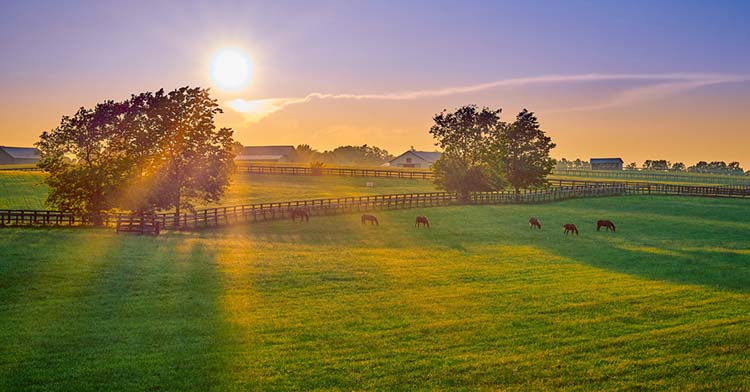
Farmland owners who choose to sell their land holdings often engage brokers or realtors with extensive experience selling farmland to help them navigate the sale process.
These professionals usually have a deep understanding of the value of different types of farmland, as well as the needs of potential investors. They can handle all details of the sale, including coordinating showings, price negotiations, and completing formal written offers and purchase contracts.
Some farmland owners choose to go it themselves, though. In this article we’ll cover the steps farmland owners may consider following if they choose to sell their land without engaging a Realtor or broker to assist with the sale.
What You’ll Need to Get the Sale Process Started
You’ve decided it’s time to cash in on the value of your farmland, and you don’t want to pay broker or realtor fees. A good place to start the sales process is to determine what your land is worth.
You can search for comparable farmland sales in your area, but that should only give you a rough idea of the average cost-per-acre of your land. Those sales won’t encompass anything that makes your property unique, such as its current and future usage, which may increase your land’s value. Hiring an appraiser will give you a much clearer picture of the true value of your farmland holdings.
An appraiser will look at many key factors, including:
- Current use
- Access
- Topography
- Amenities
- Configuration
- Size.
- Water rights
Using an appraiser to determine the fair market value of your land also can put you in a stronger position at the negotiating table, since the valuation you received is based on an unbiased expert’s professional assessment of your land.
Once you know your asking price, it’s time to put your farmland on the market to attract potential buyers or investors. There are many different paths you can take. Commercial real estate listing service LoopNet is far and away the most highly trafficked online marketplace for U.S.-based commercial real estate, including farmland and agriculturally zoned land. Outside of LoopNet, there are dozens of online listing sites that specialize in farmland sales. These sites walk users through the listing process and typically have transparent pricing structures so you know what you’ll have to spend upfront.
Here’s where things may get a bit tricky in the FSBO (for sale by owner) process. If you have a serious buyer, it’s time to sit at the negotiating table to settle on a price for your farmland. The buyer may be represented by a land broker, a professional who makes his or her living executing real estate deals for clients and who likely has extensive knowledge of regional land markets and their values. Unsophisticated sellers may lack the skills necessary to negotiate the best price possible – and rest assured, the broker’s sole interest is negotiating the best possible price for the client.
If you have multiple offers on your land, you may find you have increased leverage at the bargaining table. Conversely, if you appear desperate to sell, you may surrender leverage and eventually settle on a price that’s lower than your land’s appraised value or your expectations. The gist here is that unsophisticated sellers may not be able to negotiate the best sale terms. Tread carefully.
Another thing: selling farmland – or any piece of real estate – requires a host of binding legal documents. You’ll likely want to engage an attorney or other legal professional to help all draft sale and purchase agreements and contracts. Your sale offer should include:
- Exact legal description of the property
- Sale amount
- Water rights, and any associated oil, gas, or mineral rights
- Condition and usage of the property
- Any applicable permits or lease agreements with the BLM, U.S. Forest Service or local department of forestry, or the state
- Additional terms or conditions of the sale
Additional documentation that may be required to complete a land sale in your area could include a deed, bill of sale, purchase contract, disclosures, title, and related paperwork.
Putting it all Together
For sale by owner can be complicated, especially for land transactions that require a lot of legal paperwork. Farmland owners who opt to walk the FSBO path should conduct extensive research on sale requirements in their area, as well as speak to a legal professional about the documentation required to properly execute the sale of their farmland.
This material is for general information and educational purposes only. Information is based on data gathered from what we believe are reliable sources. It is not guaranteed as to accuracy, does not purport to be complete and is not intended to be used as a primary basis for investment decisions. It should also not be construed as advice meeting the particular investment needs of any investor.
Realized does not provide tax or legal advice. This material is not a substitute for seeking the advice of a qualified professional for your individual situation.



